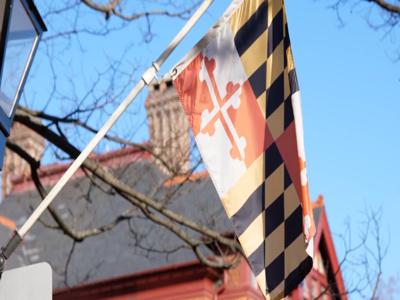MARYLAND. -- "Question 1" will ask voters if they would like to make abortion a constitutional right in the state of Maryland. Some local lawmakers are worried the proposed amendment could open up dangerous doors.
Abortions have been legal in Maryland since 1991, when the governor at the time, William Schaefer, codified Roe v. Wade.
Joan Roache of Worcester County remembers how tough it was to get there.
"When Roe passed just over 50 years ago I was in that fight in college and I feel like having won basic rights and started to move forward, not just the abortion rights but other rights, that now we're moving backwards," said Roache.
She is referring to a 2022 Supreme Court decision to overturn Roe v. Wade, federally taking away the constitutional right to abortion. Since then, 13 states have banned the practice while seven others have implemented stringent laws.
Roach does not want Maryland to be next and knows how she will be voting on this issue next month.
"I feel like this would protect our rights overall for the future," said Roache.
However, Senator Mary Beth Carroza told us "Question 1" is too broad. She takes issue with the amendments language, specifically one section that reads 'including but not limited to'.
"Making very clear that it's not limited to pregnancy decisions, it opens up all reproductive decisions which is where you get into transgender surgeries and other procedures," said Carroza.
According to Maryland's website, the proposed amendment reads as follows:
"The proposed amendment confirms an individual's fundamental right to reproductive freedom, including but not limited to the ability to make and effectuate decisions to prevent, continue, or end the individual's pregnancy, and provides the State may not, directly or indirectly, deny, burden, or abridge the right unless justified by a compelling State interest achieved by the least restrictive means."
Deborah Brocato with the group Health Not Harm agrees with Carroza and believes this amendment would put kids in danger.
"Why would we allow children to make decisions about their bodies, drugs and surgeries that would permanently alter their bodies without the guidance or direction from their parents," said Brocato.
Roache feels that thinking distracts from what this amendment could accomplish.
"It seems so off track that it's hard for me to even see that as an argument people would buy," said Roache.
A pivotal question on Maryland's ballot.
Note: Maryland voters can head to the polls as early as October 24th to October 31st for in-person voting. Election Day is of course November 5th, and again this topic will be labeled "Question 1" on this years Maryland ballot.



